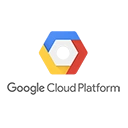Google Cloud Functions is a serverless compute service that allows you to run your code in response to events without having to manage servers. In this guide, we'll explore the basics of Google Cloud Functions and provide a sample code snippet to get you started.
Key Concepts
Before diving into the code, it's essential to understand a few key concepts:
- Trigger: A trigger is an event that initiates the execution of a function. Cloud Functions can be triggered by various events such as HTTP requests, Cloud Storage changes, and more.
- Runtime: A runtime is the environment in which your function runs. Google Cloud Functions supports multiple runtimes, including Node.js, Python, and more.
- Event Data: When a function is triggered, it receives event data, which contains information about the triggering event. The structure of event data varies depending on the trigger type.
Sample Code: Creating a Simple HTTP-triggered Function
Here's a sample code snippet to create an HTTP-triggered Google Cloud Function in Node.js:
// Import the required modules
const http = require('http');
// Define the function to handle HTTP requests
exports.myHttpFunction = (req, res) => {
res.send('Hello, World!');
};
// Create an HTTP server to handle requests
const server = http.createServer(exports.myHttpFunction);
// Start the server on a specific port
const PORT = process.env.PORT || 8080;
server.listen(PORT, () => {
console.log(`Server is listening on port ${PORT}`);
});
Deploying the Function
Once you have created your function code, you can deploy it to Google Cloud Functions using the
gcloudConclusion
Google Cloud Functions is a powerful and flexible platform for building serverless applications. It allows you to focus on writing code while Google manages the underlying infrastructure. Whether you're building web APIs, processing data, or responding to events, Cloud Functions can help you achieve your serverless computing goals.

